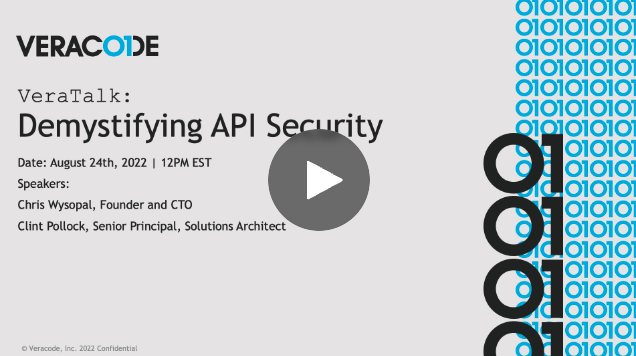VeraTalks
VeraTalk: Demystifying API Security


As the shift away from monolithic architecture continues, Application Programming Interfaces (APIs) have become more critical than ever to build modern, cloud-native applications. From enabling easy data transmission and information sharing, to boosting developer speed, flexibility, and collaborative innovation, the benefits of APIs are many. But by nature, APIs expose application logic and sensitive data, creating a highly desirable attack vector.
Keeping your code safe doesn’t have to mean missing out on API advantages. Join us for 15 quick, hard-hitting minutes to deconstruct a real-world API attack, explore unique API security risks, and learn simple tips for securing APIs earlier and more efficiently to safeguard your software development lifecycle and simplify AppSec across your organization.